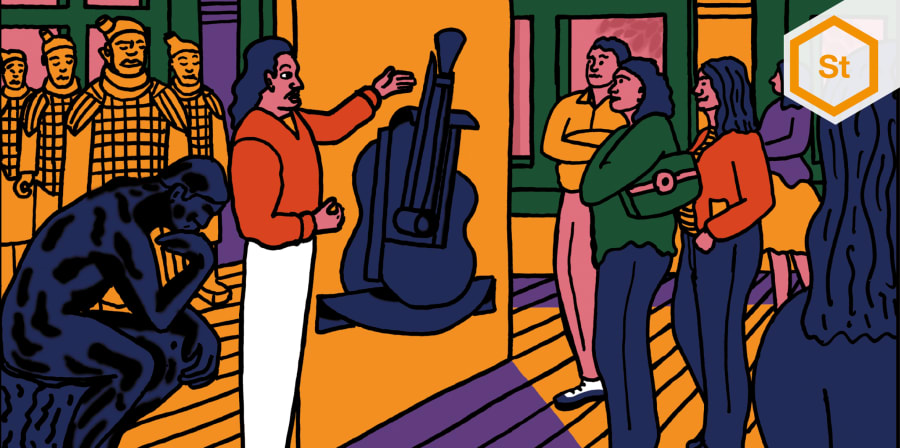
Fine artist and illustrator, Laura Bianchi, currently studying on Camberwell College of Arts’ MA Printmaking, discusses developing resilience in the competitive world of the creative industries.
I think the best way to deal with rejections is to go out looking for them.
Laura Bianchi
On thriving in a competitive industry
The outside world is incredibly competitive and this is even truer for the creative industries. Take London, for instance; there is a very high concentration of creative minds and lots of opportunities for artists, which is great.
But it also means you’re constantly required to “spark” if you want to be noticed. As much as I don’t really like hard competition I have to admit that it often helps to bring out the best from my work.
When I started to illustrate, most of my projects were self-initiated and I sent work out to various competitions, which is a great way to begin. On a practical level, competitions allowed me to build up my portfolio and to make the first steps in the outside world.
Self-motivation is a big challenge, but with time I understood that I can’t wait around to be motivated or inspired. Too often, creativity is presented as a magical attribute. True, we can talk about it as “a gift” but sometimes it is like possessing a locked treasure chest with no key: you know something precious is inside but you don’t know how to reach it. Would you wait for the chest to crack open, or would you adopt another approach? So many times I had to force myself to sit in front of a blank page no matter how frustrated or anxious I was. The creative process becomes a sort of mission but also a work as any other: wake up in the morning and don’t mess around.
Making compromises and dealing with 'failure'
Resilience can mean facing compromises, especially when it comes to commissioned work. Often it means dealing with people who are not as good at recognising a good piece from a bad one as you might wish they would be.
Then there is self-initiated work, which although it’s freer and more honest it also involves a great deal of self-motivation, which I believe to be the most difficult thing to face as a freelancer. Moreover, it’s easier to be harder on yourself when you see a self-initiated project being rejected because you probably feel you are the only one to be blamed for your 'failure'. Being resilient in this case means to face discouragement, to react by putting things in perspective and more important to insist on working day-to-day. It is hard but like everything it requires steadiness and care.
Facing rejection
There is no one who hasn’t come across rejection, and it helps to know that big successful artists have. I have dealt with it in different ways: by getting angry, by crying, by feeling depressed and discouraged, by pushing myself to do better, by starting all over again.
The main risk of dealing with rejections is that you may begin to doubt your own work too much. Doubts and critics are useful but it’s also important to have some convictions of your own. It’s not always easy to self-evaluate your own work. It’s a fine balance between external feedback and your own intuition. I think the best way to deal with rejections is to go out looking for them. If you deal with rejections early on, you’ll be stronger in the long run. One thing that helps - at least for me – is the awareness that you can’t possibly cater to everyone’s taste.
One thing that helps - at least for me – is the awareness that you can’t possibly cater to everyone’s taste.
Laura Bianchi
Find out more about Laura Bianchi's work